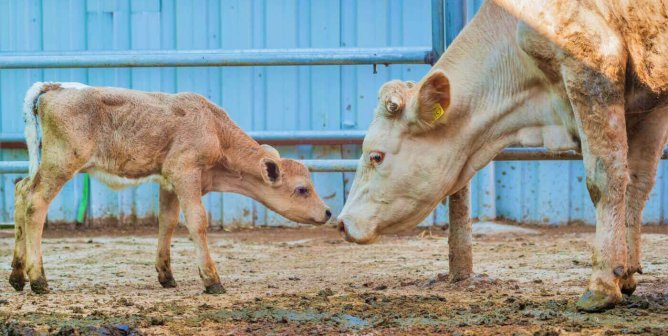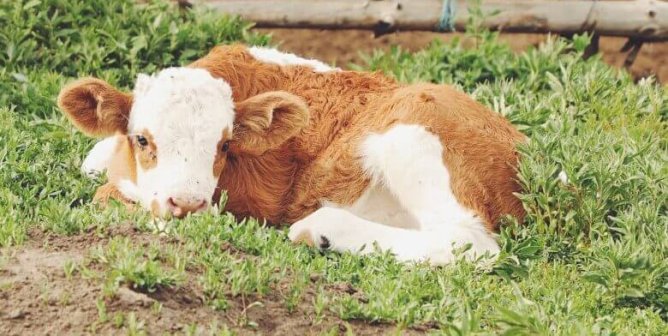Veganism and the Issue of Protein
Can a vegan diet provide adequate protein for sound human health? Absolutely. Unlike animal protein, plant-based protein sources contain healthy fiber and complex carbohydrates. Animal products are often high in artery-clogging cholesterol and saturated fat, and the consumption of animal protein has been linked to some types of cancer. There’s no need to eat animal products to maintain good health, as a quick study of the facts about plant protein and nutrition shows.
The Importance of Protein
Our bodies—our hair, muscles, fingernails, and so on—are made up mostly of different kinds of protein that consist of varying combinations of amino acids. In much the same way that the 26 letters of the alphabet can form millions of different words, 20 amino acids serve to form different proteins.
Although many of these amino acids can be manufactured by the human body, nine of them cannot.1 These “essential amino acids” are easily obtained by eating a balanced vegan diet.
How Much Protein?
As babies, our mothers’ milk provided the protein that we needed to grow healthy and strong. Cow’s milk has about three times the amount of protein found in human breast milk. Once babies start eating solid foods, plant sources can easily provide them with all the protein that they need. Only 10 percent of the total calories consumed by the average human being needs to be in the form of protein.2 The recommended dietary allowance for both men and women is 0.80 grams of protein for every kilogram (2.2 pounds) of body weight.3 People with special needs, such as pregnant women, are advised to get a little more. If a vegan eats a reasonably varied diet and consumes a sufficient amount of calories, he or she will undoubtedly get enough protein.
Eating too much animal protein has been linked to the development of endometrial, pancreatic, and prostate cancers.4,5,6 By replacing animal protein with plant protein, you can improve your health while enjoying a wide variety of delicious foods.
And getting enough protein is super-easy with Nuzest’s Clean Lean Protein. You can add it to a meal, like Chocolate Oatmeal, or to a drink, like a Wild Strawberry Breakfast Smoothie.
Protein Sources
While virtually all vegan foods contain some protein, soybeans deserve special mention. Soybeans contain all the essential amino acids and surpass all other plant foods in the amount of protein that they can deliver to humans. The human body is able to digest 92 percent of the protein found in meat and 91 percent of the protein found in soybeans.7 The availability of many different and delicious soy products (e.g., tempeh, tofu, and soy-based varieties of hot dogs, burgers, and ice cream) in grocery and health-food stores suggests that the soybean, in its many forms, can accommodate a wide range of tastes.
Other rich sources of non-animal protein include legumes, nuts, seeds, food yeasts, and freshwater algae. Although food yeasts, such as nutritional yeast and brewer’s yeast, do not lend themselves to being the center of one’s diet, they are extremely nutritious additions to many dishes, including soups, gravies, breads, casseroles, and dips. Most yeasts are 50 percent protein.(8)
Percentage of Calories From Protein (Value Per 100 Grams Edible Portion)
From the U.S. Department of Agriculture’s National Nutrient Database for Standard Reference, 2018.9
Fruits
Apple 2%
Banana 5%
Cantaloupe 10%
Grapefruit 8%
Grapes 4%
Honeydew melon 6%
Orange 8%
Papaya 6%
Peach 9%
Pear 3%
Pineapple 4%
Strawberry 8%
Tangerine 6%
Tomato 19%
Watermelon 8%
Grains
Barley 14%
Brown rice 8%
Buckwheat 15%
Millet 12%
Oatmeal 17%
Rye 18%
Wheat germ 26%
Wheat (hard red) 15%
Wild rice 16%
Legumes, Raw
Garbanzo beans 21%
Kidney beans 58%
Lentils 34%
Lima beans 24%
Navy beans 37%
Soybeans 35%
Split peas 29%
Nuts and Seeds
Almonds 15%
Cashews 13%
Filberts 9%
Peanuts 18%
Pumpkin seeds 18%
Sesame seeds 12%
Sunflower seeds 16%
Walnuts (black) 15%
Vegetables, Raw
Artichokes 28%
Beets 15%
Broccoli 33%
Brussels sprouts 31%
Cabbage 24%
Cauliflower 32%
Cucumbers 17%
Eggplant 17%
Green peas 27%
Green pepper 17%
Kale 26%
Lettuce 36%
Mushrooms 56%
Mustard greens 41%
Onions 9%
Potatoes 18%
Spinach 50%
Turnip greens 20%
Watercress 84%
Yams 5%
Zucchini 30%
What You Can Do
Going vegan opens up a whole new world of tasty foods and flavors. There are vegan alternatives to almost every animal food that you can think of—from soy sausages and “fib ribs” to phony bologna, Tofurky jerky, and mock lobster. A vegan diet can—and should—be full of a wide variety of delicious foods, plus you’ll save a lot of animals from the misery of factory farms.
References
1Yongqing Hou et al., “Dietary essentiality of “nutritionally non-essential amino acids” for animals and humans,” Experimental Biology and Medicine 240(2015): 997–1007.
2Jennifer J. Otten et al., “Dietary Reference Intakes,” Institute of Medicine of the National Academies, 2006.
3Ibid.
4Reuters, ““Animal Protein and Fat Raise Endometrial Cancer Risk,” 21 Mar. 2007.
5June M. Chan et al., “Pancreatic Cancer, Animal Protein and Dietary Fat in a Population-Based Study,” Cancer Causes and Control 18 (2007): 1153-67.
6N.E. Allen et al., “Animal Foods, Protein, Calcium and Prostate Cancer Risk: The European Prospective Investigation Into Cancer and Nutrition,” British Journal of Cancer 98 (2008): 1574-81.
7Gertjan Schaafsma, “The Protein Digestibility-Corrected Amino Acid Score,” Journal of Nutrition 130 (2000): 1865S-1867S.
8U.S. Department of Agriculture, National Nutrient Database for Standard Reference, “Leavening Agents, Yeast, Baker’s, Active Dry,” Apr. 2018.
9U.S. Department of Agriculture, Agricultural Research Service, “Nutrient Data Laboratory,” Apr. 2018.







